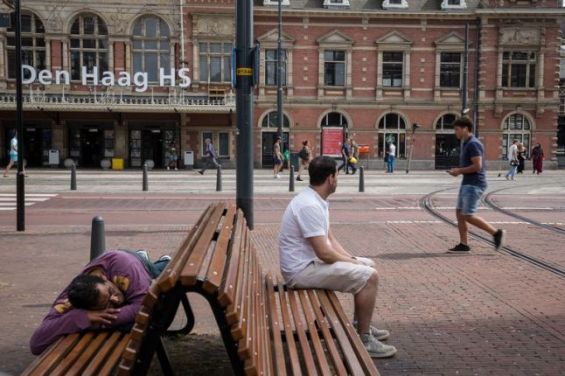Moroccan Embassy in The Hague has refused to follow a court ruling related to one of its former employees, reported Volkskrant Monday. A Dutch judge has ordered the embassy to reinstate the man and pay for the three years he spent jobless after he was unfairly fired.
The embassy did not consider diplomatic immunity when M.F. filed a lawsuit against it. The 45-year-old man holds a Moroccan passport but has also a Dutch employment contract and was living in the Netherlands since 1998.
Three years after he was dismissed, the Court of Appeals in The Hague issued its verdict indicating that the Moroccan employee is right but the decision has been rejected by the Moroccan embassy which is reportedly going to appeal.
Although the court ruled in favor of his client, M.F.’s lawyer Nawid Fakiri is not reassured. He told Volkskrant that the embassy might not pay and would for sure invoke diplomatic immunity. The latter is a form of legal immunity that ensures diplomats are given safe passage and are considered not susceptible to lawsuit or prosecution under the host country’s laws.
Lawyer Fakiri’s fears were justified. On the 4th of July, he received an e-mail from the Moroccan party, indicating that the embassy «will not comply with ruling».
Considering diplomatic immunity
But even if the Moroccan embassy is not ready to comply with the Dutch judge’s ruling, it cannot enjoy immunity. According to the Vienna Convention, an international treaty that defines a framework for diplomatic relations between independent countries, diplomats and embassies do not have to answer lawsuits in host countries.
In this case, The Kingdom’s embassy did answer the lawsuit filed in 2015 by its ex-employee. Commenting on the situation, Morocco’s Ambassador to the Netherlands explained that the embassy did not consider diplomatic immunity because it wanted to follow the Dutch rules as much as possible.
The diplomat said that it is not up to him to execute the sentence and that «Rabat has to make a decision», reported the same source, stressing that the Moroccan authorities will be appealing soon.
Meanwhile, The Hague Court believes that Morocco cannot appeal as it did not refer to legal immunity at the beginning of the lawsuit and that the ruling must be executed.
Speaking to the Dutch newspaper Evert Verhulp, a professor at the University of Amsterdam, thinks that it is hard to make the embassy pay. «With a Dutch employer you can have your wallet, car and house seized if it is necessary. But in this case diplomatic agreements prevent, for example, that the car of an ambassador is confiscated», he argued.
Meanwhile, M.F. is stuck in the Netherlands, waiting for the Moroccan embassy’s next step. «I cannot go anywhere while being wronged. Such an embassy can simply do whatever they want with you», he concluded.





 chargement...
chargement...













